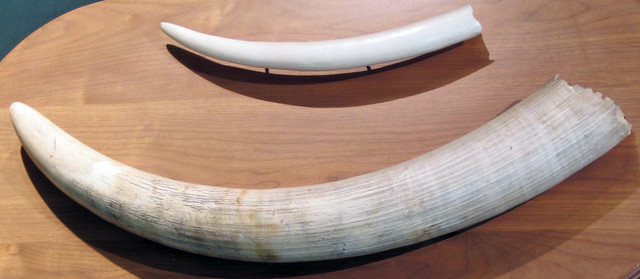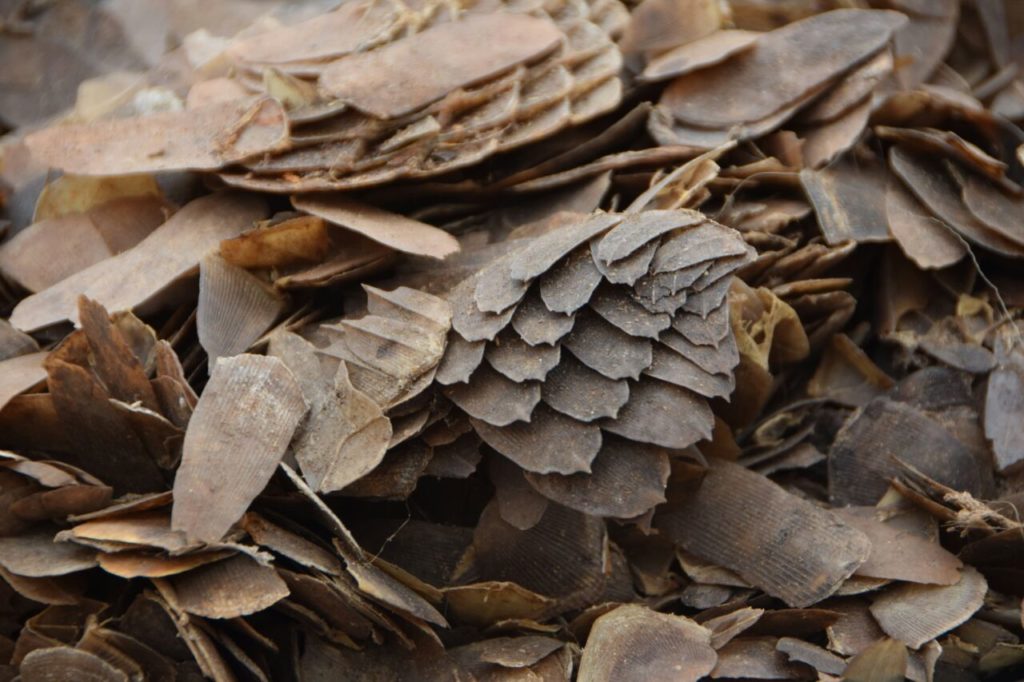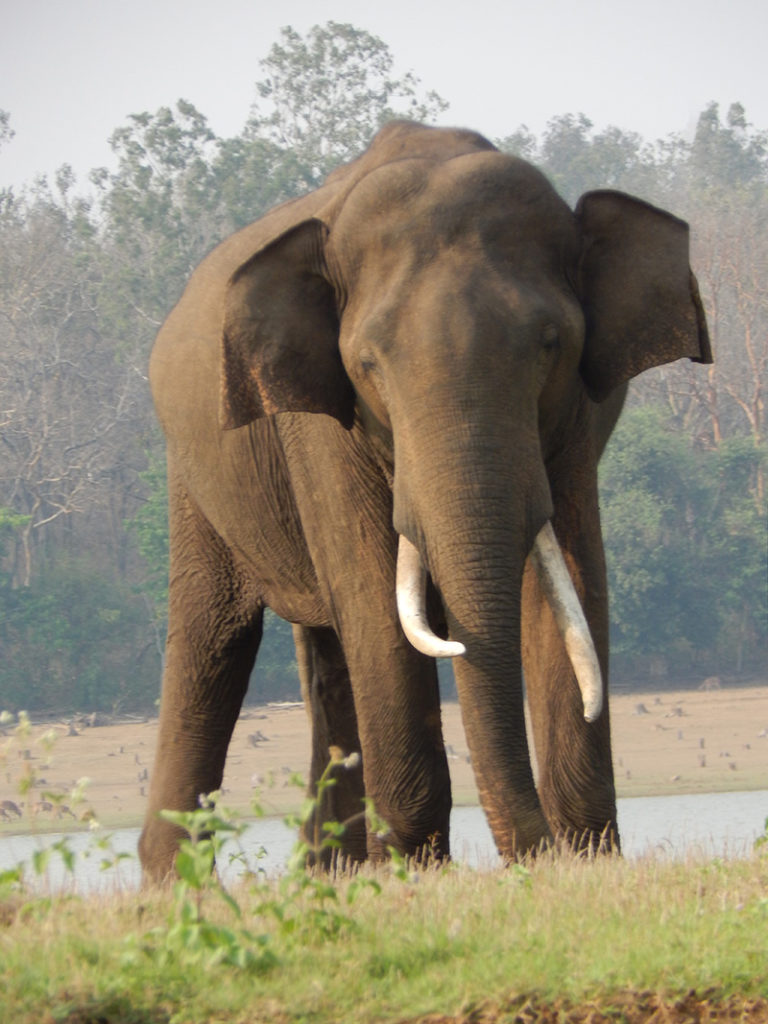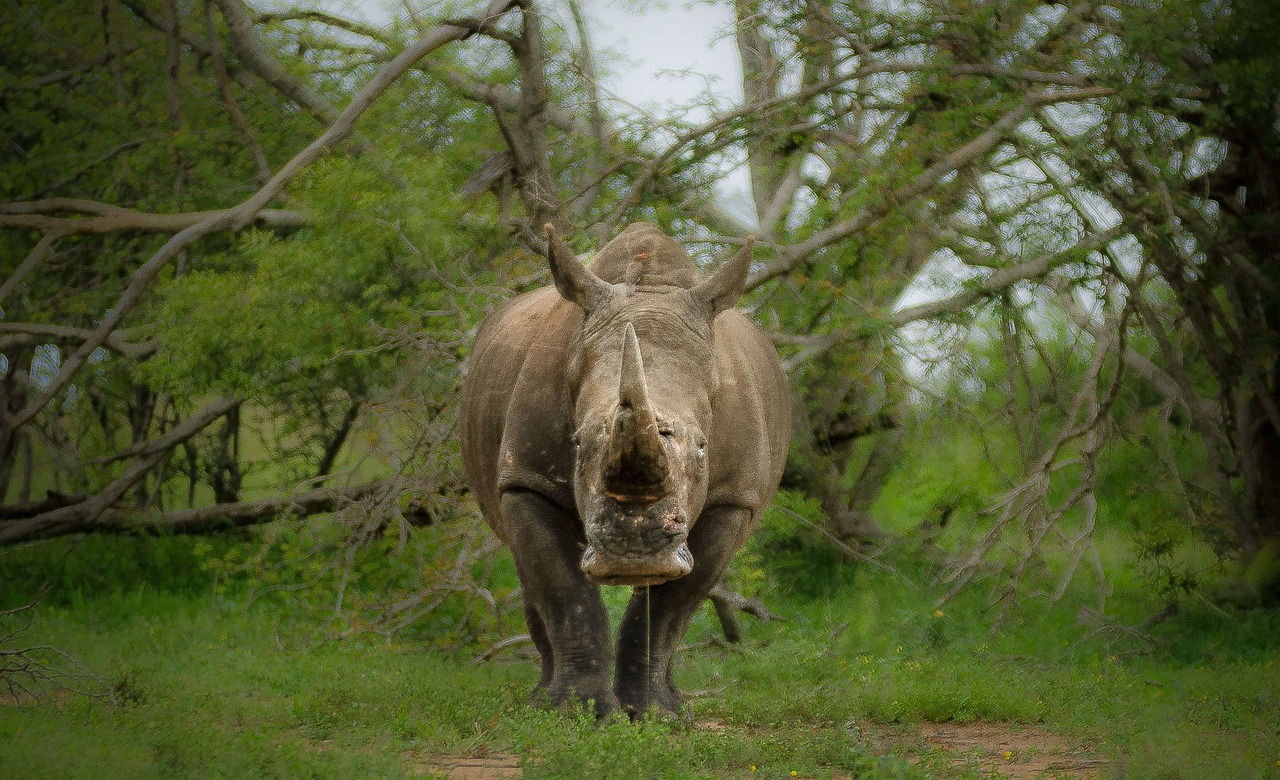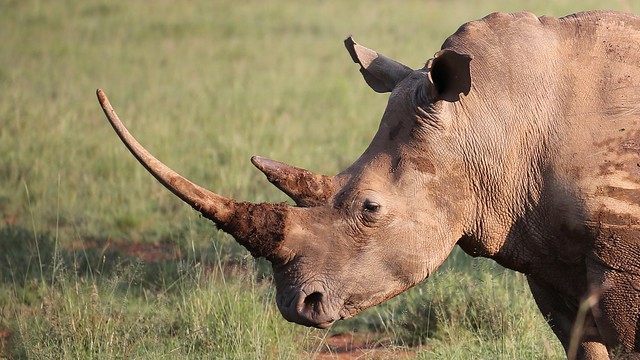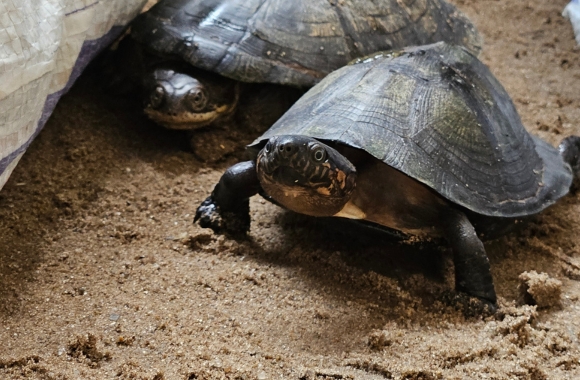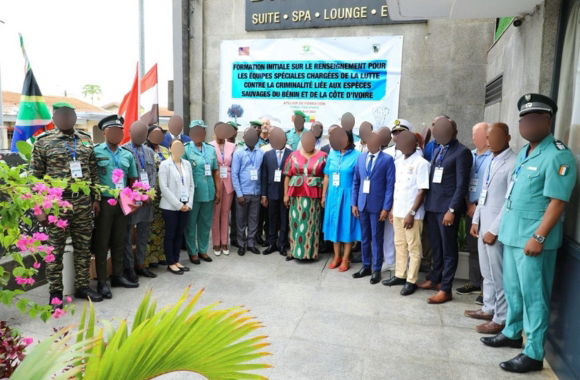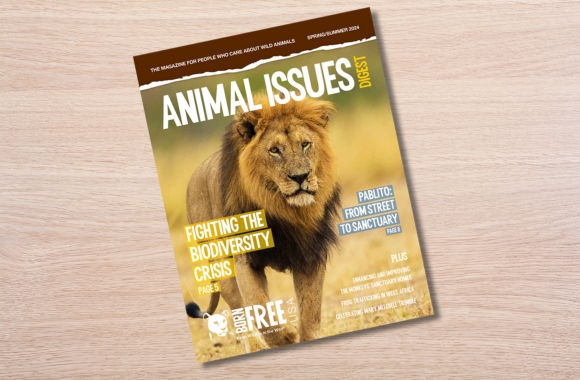A Deadly Trade
The poaching of rhinos to supply rhino horn into illegal markets principally in parts of Asia where it is used in traditional medicines and tonics, and as a high-end gift and investment, is a major factor in the decline of rhinos. Between 2008-2017, more than 7,000 rhino were killed by poachers in South Africa alone. The poachers do not care about the welfare of the animals, and many rhinos are left to suffer and die after their horns have been hacked off. Baby rhinos are also killed for their tiny horn stubs, or left to starve.
Despite the fact that rhino horn consists largely of keratin like human finger nails, the huge prices being paid for rhino horn in Asian markets has led to the smuggling of horns under the guise of trophy hunting in South Africa, and the theft of horns from museums, galleries, and even zoos in the UK and across Europe. It has also resulted in increased interest in ‘antique’ items made from or containing rhino horn, particularly among Asian buyers.
The criminal networks and corrupt officials involved in rhino horn trafficking not only jeopardize the very future of these ancient and noble animals, but also deprive communities of social, economic, and political security.
If demand for rhino horn continues, more rhino populations and species will disappear altogether in the coming years.
Working to End Supply and Demand
Born Free works hard to protect rhinos on the ground, improve law enforcement in source, transit and destination countries, reduce demand through consumer education, and persuade governments to take action to enforce trade bans. Ultimately, rhinos will only have a long term future if we can end the demand for rhino horn. Ending the commercial trade in all items made from or containing rhino horn, from any source and forever, is one step towards achieving that objective.
